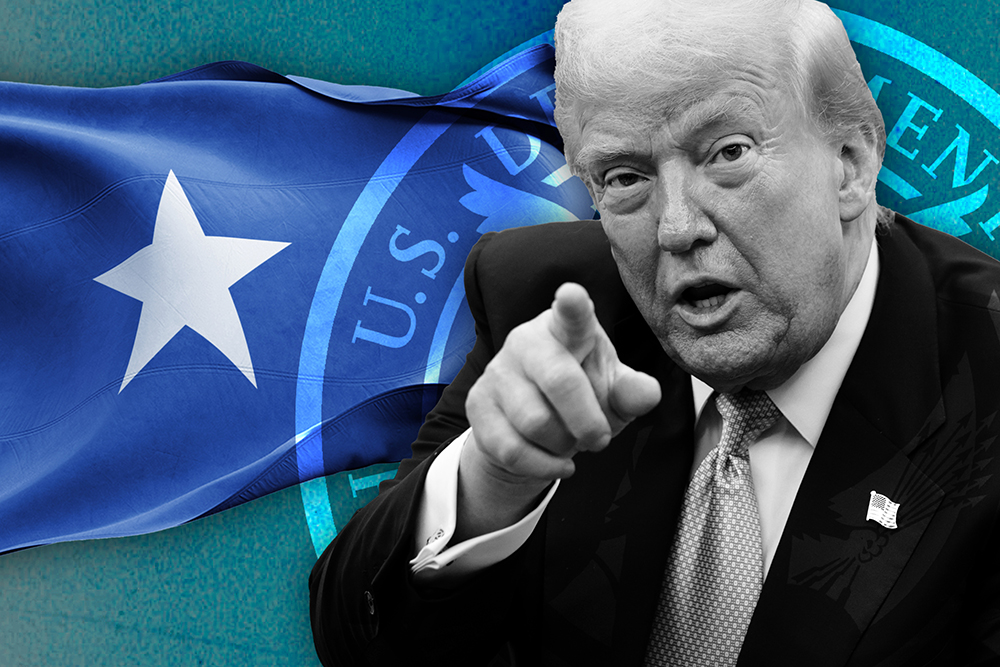I recently reported on a major partnership signed by a German tech startup. Or so I thought. Not long after publication, I got a message from the company: ‘You have wrongly said we were founded in Germany. In fact, we were founded in California. Please correct this.’
That’s strange, I thought. Everyone I spoke to sounded pretty German – and indeed the person I emailed was based at the firm’s Berlin offices. But they were adamant: this was a California-based business.
The perception is that America has strong innovation, and Europe has strong regulation
I did some digging and discovered the company had been registered in Germany at least a year before it even opened an office in the US. Eventually the firm conceded that it was in fact founded in Germany, though it had since shifted operations across the pond. Perhaps this was a simple factual error by my interlocutors, but it made me wonder: are European tech firms embarrassed about being seen to be European?
There are lots of reasons not to start a technology business in Europe, compared to the US. Levels of investment are lower, the public markets are in the doldrums, talent can be harder to find and the regulatory obstacles are bigger. Simply put, a European startup’s chances of becoming a billion-dollar business are lower than an identical American startup. So if you’re looking for funding, there are good reasons to tell investors, ‘We’re from California.’
This is felt especially acutely in AI, where the market has become dominated by the US and China in both investment and innovation, while the EU lags behind. To its credit, Britain ranks third globally (though it is not a close third), thanks to leading academic research at places like Oxford University and several fast-growing companies like ElevenLabs, Synthesia and Wayve.
Plenty of metrics point to this divergence in fortunes, but perhaps the clearest is in the number of data centres – the lifeblood of AI firms – where the US has more than twice as many as the EU. And while many more are being built in America, the response of several European countries has been to restrict their construction even further. This is compounded by the creation of the EU’s AI Act, which imposes a suite of restrictions on the operation of AI businesses, rising in intensity as they grow in size.
The US’s distaste for these rules was made clear by Vice President JD Vance in Paris this week, in his first major speech in Europe since taking office. ‘We believe that excessive regulation of the AI sector could kill a transformative industry just as it’s taking off,’ he said. ‘I’d like to see that deregulatory flavour making its way into a lot of the conversations at this conference.’
It’s easy to interpret Vance’s Paris speech as politically motivated, but in reality he is merely echoing the feelings of many in the AI sector, including in Europe. Several AI bosses have told me they felt the EU’s AI Act was, in effect, a signal that the bloc was ruling itself out of the global AI race.
The perception across the pond is that America has strong innovation, and Europe has strong regulation. One welcomes growth and the other is suspicious of it. That is being borne out in the fact that the latest releases of AI models are taking longer to be made available in the EU because of all the extra regulatory hoops to jump through. This is a problem which even the arch-Remainer himself, Nick Clegg, has complained about vociferously.
But there is more at stake than just economics. In her book Supremacy, tech journalist Parmy Olson reports that the early days of London AI firm DeepMind were fraught with tensions between two of the founders, Demis Hassabis and Mustafa Suleyman.
Suleyman was desperate to use AI to solve society’s problems. That should be DeepMind’s mission statement, he reckoned. Hassabis was nonplussed. ‘You’re missing the bigger picture,’ he said. Never mind today’s problems, DeepMind could answer questions that had escaped the brightest minds for centuries – questions on humanity’s purpose, its destiny and the fate of planet earth.
Pretty lofty ambitions for two grads running a startup. But how glorious that they felt these were within their gift. This was in an era before anyone had talked about AI regulation, when the limits of AI were the limits of human theorising. Today’s AI startups are more likely to be thinking about what they’re allowed to do, under the rules, than what they’re capable of.
There are plenty of reasons to wave a stick at Big Tech firms, who have done many things wrong. But AI has the potential to be transformative. It could upend entire industries, labour markets, and much more besides. It will change the way we do and think about much in our lives.
That is the real danger to Europe: the more it attempts to stand in the way of this, the less it stands to benefit in the long run. Never mind today’s problems: they’re missing the bigger picture.







Comments